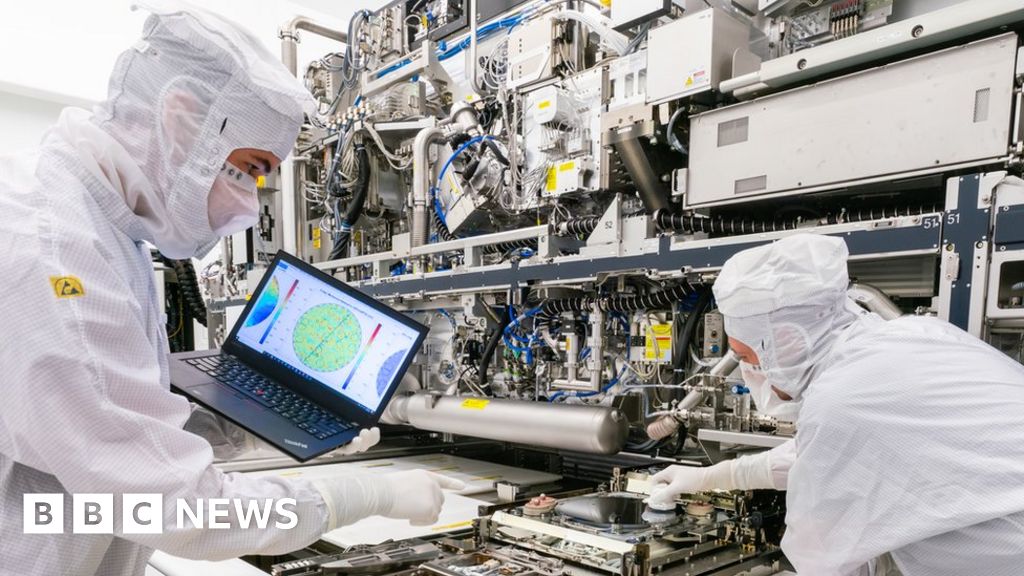US-China Chip War: ASML Says China Employee Stole Data

Major computer chip equipment maker ASML says a former employee in China stole information about its technology.
The Dutch firm says it has since reported the breach to authorities in the Netherlands and the US.
However, the company added that it does not "believe that the misappropriation is material to our business."
ASML is one of the most important firms in the global microchip supply chain. It makes machines that produce the world's most advanced chips.
Chips, or semiconductors, which are used to power everything from mobile phones to military hardware, are at the centre of a bitter dispute between the US and China.
"We have experienced unauthorised misappropriation of data relating to proprietary technology by a (now) former employee in China," ASML said in its latest annual report.
"As a result of the security incident, certain export control regulations may have been violated. We are implementing additional remedial measures in light of this incident," it added.
ASML did not name the former employee or give details on which export control regulations may have been violated.
The firm did not immediately respond to a BBC request for comment.
The Chinese embassy in Washington did not immediately respond to a BBC request for comment.
This is not the first time that ASML has linked an intellectual property (IP) breach to China.
In its 2021 annual report, the firm said it was aware of reports that a Chinese semiconductor equipment and software maker, DongFang JingYuan Electron, "was actively marketing products in China that could potentially infringe on ASML's IP rights."
DongFang JingYuan Electron denied the allegations.
At the time the Beijing-based company said the reports were "inconsistent with the facts".
"We reserve the right to take any other legal actions against the relevant false information," it added.
Major companies in the semiconductor industry have faced controls on exports to China.
In October, Washington announced that it would require licences for companies exporting chips to China using US tools or software, no matter where they are made in the world.
The US has been pushing the Netherlands and Japan to adopt similar restrictions.
Since 2019 the Dutch government has stopped ASML from selling its most advanced lithography machines to China.
Lithography machines use lasers to print miniscule patterns on silicon as part of the manufacturing process of microchips.
You may also be interested in:
Watch: How the semiconductor shortage could be a problem for you
From Chip War To Cloud War: The Next Frontier In Global Tech Competition
The global chip war, characterized by intense competition among nations and corporations for supremacy in semiconductor ... Read more
The High Stakes Of Tech Regulation: Security Risks And Market Dynamics
The influence of tech giants in the global economy continues to grow, raising crucial questions about how to balance sec... Read more
The Tyranny Of Instagram Interiors: Why It's Time To Break Free From Algorithm-Driven Aesthetics
Instagram has become a dominant force in shaping interior design trends, offering a seemingly endless stream of inspirat... Read more
The Data Crunch In AI: Strategies For Sustainability
Exploring solutions to the imminent exhaustion of internet data for AI training.As the artificial intelligence (AI) indu... Read more
Google Abandons Four-Year Effort To Remove Cookies From Chrome Browser
After four years of dedicated effort, Google has decided to abandon its plan to remove third-party cookies from its Chro... Read more
LinkedIn Embraces AI And Gamification To Drive User Engagement And Revenue
In an effort to tackle slowing revenue growth and enhance user engagement, LinkedIn is turning to artificial intelligenc... Read more

